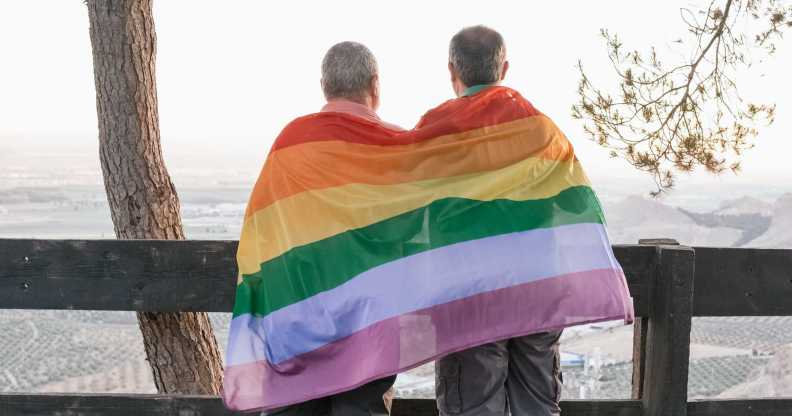Gay and bisexual men enjoy active sex lives in their 70s, new study reveals

The survey was originally intended to look into the spread of mpox, but it revealed some interesting information about the sex lives of gay and bi men in the UK over the age of 70. (Getty Images)
The survey was originally intended to look into the spread of mpox, but it revealed some interesting information about the sex lives of gay and bi men in the UK over the age of 70. (Getty Images)
New research has found that gay and bisexual men in their later years are living their best (sex) lives, with multiple partners into their 70s.
A new survey from the University of East Anglia (UEA), in collaboration with King’s College London and University College London, shatters the common misconception that older people don’t tend to have active sex lives or a range of sexual partners.
There’s certainly a social expectation that single people have fewer sexual partners as they reach old age, and while that’s true for some people, the UEA study reveals that it’s certainly not the case for all.
The survey was originally intended to look into the spread of mpox, but it revealed some interesting information about the sex lives of gay and bi men in the UK over the age of 70.
Researchers spoke to more than 5,000 people aged 18 and older – including 3297 sampled from the general population and 1,867 gay or bisexual men recruited via social media – during 2022, and found that many gay and bisexual men over 70 continue to have a vibrant sex life with multiple partners.
Straight women, however, were found to become less sexually active after age 50.
The findings showed that 79 per cent of heterosexual women and half (50 per cent) of straight men aged 70-plus had had no sexual partners in the last three weeks.
In contrast, 17 per cent of gay or bisexual men over the age of 70 reported more than one sexual partner in the same period, and 25 per cent of gay or bi men aged 70-plus who were invited to take part through sites such as Facebook, Instagram and Grindr had concurrent partners.
Only two per cent of straight people over 70 reported multiple partners.
About 65 per cent of heterosexual women reported having one partner in the last three weeks consistently until they reached 50 years of age, after which there was a significant increase in reporting no sexual partners at all.
The organisers of the survey were surprised by the results, expecting lower numbers of people (of all genders and sexualities) to have fewer sexual partners in the over-70s age group.
Lead researcher Dr Julii Brainard, from UEA’s Norwich Medical School, addressed the “assumptions” challenged by these findings.
“Before this study, many models about sexually transmitted diseases assumed that everyone over a certain age, say 40 or 65, stopped being sexually active, or at least stopped having multiple partners,” Dr Brainard said. “Or there might be an assumption that young people have the most sex.
“But the answer is more nuanced, and it partly depends on people’s sexuality.”
“Even at age 65-plus, the respondents recruited via social media still tended to have more sexual contact than the general population sample at the same age.”
Research fellow and survey coordinator Dr Louise Smith from Kings College London explained that lesbians, bisexual women and trans people were not included in the final data because they weren’t recruited in the same numbers.
“At the time, mpox mostly affected gay and bisexual men so we focused recruitment on this group,” Dr Smith said. “Because we didn’t recruit very many lesbian and bisexual women, or members of the trans community, our statistical analyses would have been less reliable for these groups.
“Further research into other minority sexualities and gender identities could be beneficial to better understand the granularity of sexual behaviour and optimal public health messaging suited to different groups of people in the UK.”

